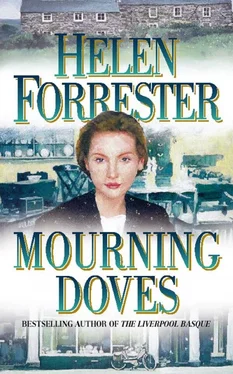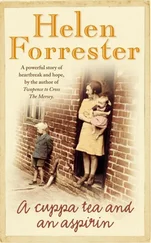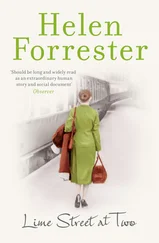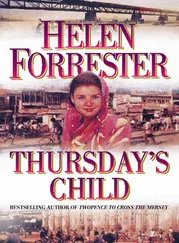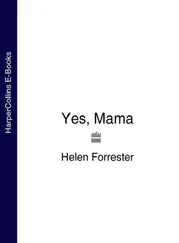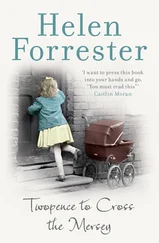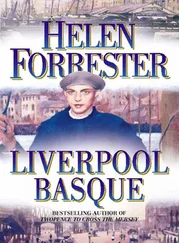HELEN FORRESTER
MOURNING DOVES
To Stephen and Lauren, with love
Cover
Title Page
Dedication
Prologue: 11 November 1995
Chapter One: March 1920
Chapter Two
Chapter Three
Chapter Four
Chapter Five
Chapter Six
Chapter Seven
Chapter Eight
Chapter Nine
Chapter Ten
Chapter Eleven
Chapter Twelve
Chapter Thirteen
Chapter Fourteen
Chapter Fifteen
Chapter Sixteen
Chapter Seventeen
Chapter Eighteen
Chapter Nineteen
Chapter Twenty
Chapter Twenty-One
Chapter Twenty-Two
Chapter Twenty-Three
Chapter Twenty-Four
Chapter Twenty-Five
Chapter Twenty-Six
Chapter Twenty-Seven
Chapter Twenty-Eight
Chapter Twenty-Nine
Chapter Thirty
Chapter Thirty-One
Chapter Thirty-Two
Chapter Thirty-Three
Chapter Thirty-Four
Chapter Thirty-Five
Chapter Thirty-Six
Chapter Thirty-Seven
Chapter Thirty-Eight
Chapter Thirty-Nine
Chapter Forty
Chapter Forty-One
Chapter Forty-Two
Chapter Forty-Three
Chapter Forty-Four
Chapter Forty-Five
Chapter Forty-Six
Chapter Forty-Seven
Chapter Forty-Eight
Chapter Forty-Nine
Epilogue
Acknowledgment
About the Author
By the Same Author
Copyright
About the Publisher
Prologue 11 NOVEMBER 1995
The cenotaph stood on its great concrete plinth at the top of Grange Hill. To reach it meant a long climb for aged veterans and decrepit widows. Nevertheless, in this fiftieth anniversary year, a larger number than usual had turned out for the Remembrance Day service. Now the last wreath had been laid, and the parade had been formed up and was marching slowly down to the village.
As the voices faded away, Celia sat in her wheelchair, waiting with Rosemary, her West Indian carer, and her godson, Flight Lieutenant Timothy George Woodcock, DFC, until the narrow path down to the road was clear of people, and the wheelchair could be manoeuvred down.
Coming straight off the distant snow-topped mountains of North Wales and the estuary of the River Dee, the wind was cold, and, despite the blanket Rosemary had tucked round her, Celia was shivering.
She did not weep. Crying never helped anybody, she would say tartly. She had, however, a keen sense of inward loneliness, and she remembered suddenly her sister, Edna, friend and partner in so much of her life – ever since 1920.
What a year that had been. A year of final realisation that the men killed in the First World War would never come back, and neither would the safe, predictable life of 1914. Millions of ignorant, untrained women had had to remake their lives and find work to maintain themselves. I was one of them, considered Celia, as she sat patiently in her wheelchair and looked out across the misty landscape of the Wirral. And I suppose that, in some ways, I was lucky.
She was, she knew, the oldest person to attend the service, one hundred years next week; and she was probably the only person in the district with truly clear memories of the First World War, of life before it began and of its aftermath.
Her luck had not held. The names of five members of her family were listed on the cenotaph, and every year she made the effort to come to lay a family wreath, gorgeous with huge plastic poppies and black satin ribbons, at the foot of the memorial. From the wreath dangled an old-fashioned black-edged card, which said,
IN TENDER MEMORY OF MY SONS, PETER, PAUL AND BERTRAM TREMAINE, KILLED IN ACTION IN WORLD WAR II, AND OF MY GRANDSONS, MICHAEL AND DAVID TREMAINE, LIKEWISE KILLED IN ACTION IN THE FALKLANDS WAR. NEVER FORGOTTEN.
As they waited, Timothy George also felt the cold and longed for a warm fire and a whisky and soda. A pity Bertram’s wife could not be here, he thought; but, after her sons, Michael and David, had been killed, there was nothing to keep her in the Wirral, and she had gone south to live with her own mother in Devon.
Celia had remained, alone, in the red-brick Edwardian house which she and Alec had bought on their marriage.
It was strange to realise, Timothy ruminated, that, to most of the parishioners, both the First and the Second World Wars were forgotten wars, forgotten sacrifices. Except in special anniversary years such as this one, the crowds around the cenotaph grew smaller each year.
The flight lieutenant sighed. He supposed that Celia and he were, by now, simply walking history, not that Celia could walk very far; she was quite frail. This would probably be the last Poppy Day for her – and probably the last for many of the men like himself, some in uniform and some in shabby macintoshes, all with glittering collections of medals pinned to their breasts – and for the pitiful little bunch of widows and elderly spinsters, each with a red poppy in her buttonhole.
As he had glanced at the huddled old women, he had felt uneasily that even today there were some elderly women who were still not very good at managing life alone.
Their husbands, sons and lovers had died in the Second World War. Theirs was the second generation of women to be widowed by war or left without hope of marriage.
His own brother’s name and also the names of Celia’s brothers were on the Roll of Honour in the glass case on the cenotaph in Liverpool Cathedral. His brother, Eric, had been shot down by a sniper in Normandy during the Second World War, leaving a pregnant wife. His little nephew, he considered, had been fortunate to have been brought up by a kindly stepfather, considerably younger than his mother.
The wars had created a dreadful double generation gap, he thought grimly, and judging by the mismanagement in the country, the gap had not yet been closed.
He had for years held the notion that nobody had been able to fill the empty spaces left by the fathers and grandfathers who had died – or had been so wounded or exhausted that they were too weary to do anything much, once they had returned to civilian life. He remembered how tired he had been himself; it had been an enormous effort to start again after he had been demobbed.
Rosemary shook his arm, and said, ‘I think we can go down now.’
He jumped, and then grinned agreement. In the comparative silence now surrounding them, the cold wind whined and the artificial foliage of the wreaths rustled faintly in reply, like distant voices calling.
Before they moved her, Celia turned to glance once more at the wreaths and then upwards to the bronze soldier in battledress who stared out over the sands of the estuary.
She remembered three little boys who had built a sand castle on the seashore, and how they had squabbled about who should place a paper Union Jack on its summit. She felt a sudden terrible pain go through her. Years later, they had followed that Union Jack and had gone gaily off to war and never come back. And in the Falklands War her two grandsons had done the same, for reasons that she could never understand.
‘Goodbye, my dears,’ she whispered, as the wheelchair began to move. ‘See you soon.’
She took out a paper handkerchief and firmly blew her nose. One must never give in. Edna and I certainly never did.
Was it really as small as that? Had that weed-covered quarter-acre ever held a formal flower garden, a lawn at the side of the house and a vegetable garden?
Louise Gilmore glanced up in despair at the house itself, one of a semi-detached pair. Sharp shards of glass stood upright in the frame of the broken hall bedroom window. She remembered how Gracie, her father’s housemaid, used to shake her dust mop out of that window – regardless of who might be standing below on the front step. When the family came to spend their holidays in the house, one of the maids had always come with them; it was usually Gracie, who hated the isolation of the place, the steady boom of waves on the sea wall, and the sand which constantly sifted in from the surrounding dunes.
Читать дальше
